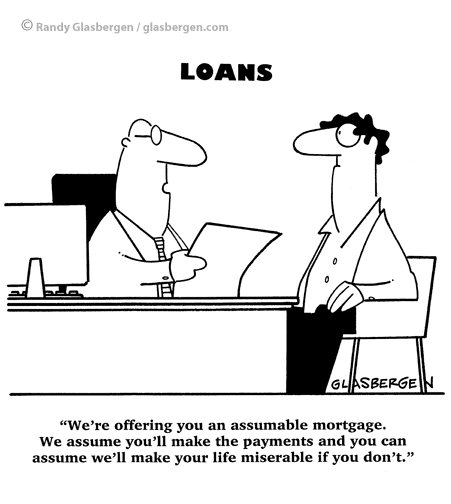
The Classic Mortgage vs RRSP Debate

As we waive goodbye to 2013 and get busy with the day-to-day of 2014, the lucky ones among us have some free cash. At this time of year, a common question becomes whether that cash should get directed to an RRSP or used to pay down the mortgage.
If you ask most actuaries they will say ‘it depends’ and if you ask most financial institutions they will say ‘do both’ which is a slick way of marketing the answer they are actually giving which is to contribute to an RRSP. I don’t want to be overly cynical, but when was the last time your banker said, ‘great idea, pay down your mortgage so we can earn less interest and don’t put the money in your RRSP so we also miss the opportunity to earn more on your retirement savings’? There are no interest groups funding television commercials to urge you to pay down your mortgage!
I am going to go out on a limb and give almost all of you the right answer for 2014 for your circumstances – drum roll please – pay down your mortgage! Remember – this is advice for 2014 only and isn’t a generalization to be used every year for the rest of time.
Why isn’t this answer right for everyone? Two reasons – first, a few of the very fortunate among us don’t have a mortgage and second, for some there are a whole host of reasons that make the opposite conclusion correct – but these are very few among us. Why is paying down the mortgage the right answer for almost everyone else in 2014?
The idea of de-risking has been all the rage in pension investing circles for the last five years. I won’t get into why that is and whether it should be that way or not. What I am saying is that the principles of de-risking that apply to pension investing also apply to average citizens trying to manage their way through life. My conclusion is based upon three principles as follows:
Principle #1 – Savings: both roads result in increased savings. Whether you save more in an RRSP, a TFSA, or a bank account or you pay off credit card debt, a mortgage, or Uncle Raymond, you are increasing your net worth – you are saving. Any of these choices is better than a trip to Disney or renovating a bathroom in terms of getting further down the road to a comfortable retirement. While we could split hairs on the tax effectiveness of each choice, for now I am focusing only on the classic debate between growing savings (RRSP) or reducing debt (Mortgage).
Principle #2 – Mismatch: holding a Mortgage while you have money in an RRSP is what actuaries like to call an asset/liability mismatch. Your debts are in fixed monthly payments and your assets are most likely invested to some degree in equities where returns are anything but fixed. The bigger you make your mortgage and the bigger you grow your RRSP the bigger the mismatch and the bigger the opportunity to be a winner or a loser betting on the RRSP to grow faster than the cost of the mortgage.
Principle #3 – Time: the Mortgage is a short-term problem and the RRSP is a long-term asset. Most people have a mortgage payment due next month and most people have those payments continuing every month for the next 60 or 120 months – the unfortunate and the young have even longer to go. On the other hand, for most, the retirement income that you hope to generate with the RRSP is at least 60 or 120 months away from starting– the unfortunate and the young have even longer to wait.
Given these three principles, Savings, Mismatch, and Time, here is how I reach the conclusion that 2014 is the year to pay down the mortgage. If you believe that your RRSP is going to earn a higher rate of return (after you adjust for the taxes you have to pay on that income when you take the money out of the RRSP) than the after tax rate of interest you are paying on your mortgage then in theory putting the money in the RRSP gets you further ahead. Even if you think that is true over the long-term there are two reasons I don’t think you should double down on that bet for 2014.
First, not every year follows the patterns of the long-term averages. There are ups and downs – both for stock market returns as well as interest rates. As we come off a decade of low interest rates and a banner year for equities – I think it is likely that 2014 will see further rises in interest rates and equities may well struggle to keep up. So you shouldn’t bet your financial well being for 2014 on a long-term average.
Second, time isn’t always on your side. If interest rates rise, variable-rate mortgage holders will see payments rise and fixed-rate mortgage holders will take a hit on renewal. These increases need to be funded immediately, there is no room to ask the bank to hold off a year or two until the increases are more affordable. On the other hand, even if the RRSP returns are good, the money is set aside long-term and isn’t available to help you make it month-to-month with your new higher mortgage payments unless you are willing to withdraw the funds and take a tax hit at what is likely an inopportune time and lose that RRSP room forever.
In a nutshell, rising interest rates along with the lack of accessibility of RRSP funds make paying down the mortgage your best bet for having some wiggle room over the coming few years.
A few final comments: If you have credit card debt, that has to go first since you are almost always paying a higher rate of interest there than on the mortgage. Also, I am not here to debate RRSP vs TFSA – that is a discussion for another day, but if the point of the TFSA is to save long-term for retirement then my conclusion is the same – the debt goes first.
Ideally, everyone should be working to spend less and save more. The first step in savings is to get your mortgage down to a level where the payment is small enough that even if your payments increase 10% or 20% due to rising interest rates it is still manageable. Once the mortgage is under control, you can start to build retirement savings, whether in the RRSP, TFSA, gold bars, or under the mattress. This commentary isn’t about optimizing investments and taxes; it is about getting control of your finances and your future.
Please don’t sue me if you follow this advice and 2014 gives us a year that makes the RRSP the right answer for 2014 – it is still your decision to play it safe or roll the dice. The point is that any year can give us anything – hope for the best and plan for the worst. If you need more help than I have offered here – hire a financial advisor.
All the best for 2014!



Comments
3